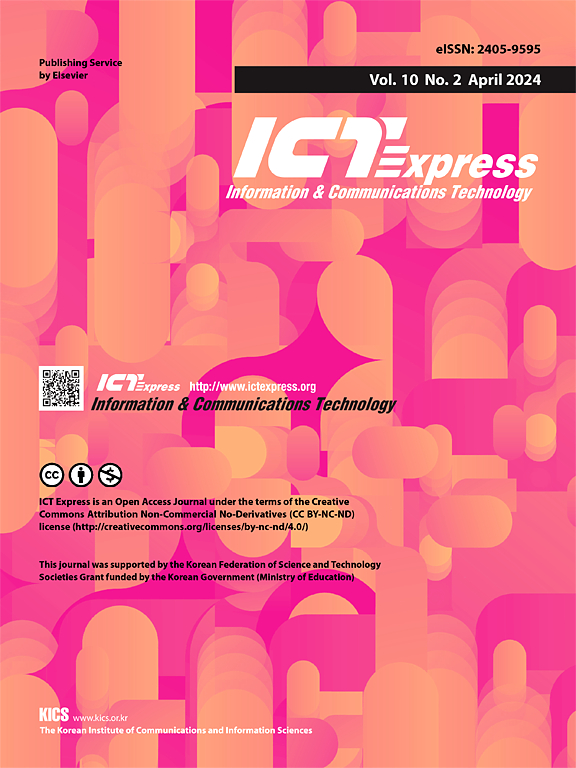Fusion of self-attention mechanism for CSI feedback in massive MIMO systems
IF 4.2
3区 计算机科学
Q1 COMPUTER SCIENCE, INFORMATION SYSTEMS
引用次数: 0
Abstract
In massive MIMO systems, obtaining accurate channel state information (CSI) is crucial for optimal channel coding and beamforming. However, traditional CSI feedback methods require high bandwidth and also consume a large amount of power and computing resources. To address these challenges, several compressed sensing-based techniques have been implemented in recent years. These techniques, however, are often iterative and computationally complex to implement in power-constrained user equipment. In this paper, we propose a novel fusion of the self-attention mechanism, called FSAMNet, to efficiently and accurately implement the CSI feedback task for massive MIMO systems. Our proposed FSAMNet adopts both the residual connections in the attention mechanism and a sequence of depth-separable convolutional layers to enhance the model’s performance and expressive ability. Specifically, we apply a multi-layer self-attention mechanism in the encoder part to achieve feature extraction and compression. In the decoder part, we use multiple convolutional layers and self-attention mechanisms to convert the embedding vector generated by the encoder back into the original image. Experimental results show that the performance of our proposed FSAMNet outperforms conventional benchmark schemes in terms of feedback network performance.
大规模MIMO系统中CSI反馈自注意机制的融合
在大规模MIMO系统中,获取准确的信道状态信息是优化信道编码和波束形成的关键。然而,传统的CSI反馈方法需要高带宽,并且消耗大量的功率和计算资源。为了应对这些挑战,近年来已经实施了几种基于压缩感知的技术。然而,这些技术通常是迭代的,并且在功率受限的用户设备中实现计算复杂。在本文中,我们提出了一种新的自关注融合机制,称为FSAMNet,以有效和准确地实现大规模MIMO系统的CSI反馈任务。我们提出的FSAMNet采用了注意机制中的残差连接和深度可分离的卷积层序列来提高模型的性能和表达能力。具体来说,我们在编码器部分采用了多层自关注机制来实现特征提取和压缩。在解码器部分,我们使用多个卷积层和自关注机制将编码器生成的嵌入向量转换回原始图像。实验结果表明,我们提出的FSAMNet在反馈网络性能方面优于传统的基准方案。
本文章由计算机程序翻译,如有差异,请以英文原文为准。
求助全文
约1分钟内获得全文
求助全文
来源期刊

ICT Express
Multiple-
CiteScore
10.20
自引率
1.90%
发文量
167
审稿时长
35 weeks
期刊介绍:
The ICT Express journal published by the Korean Institute of Communications and Information Sciences (KICS) is an international, peer-reviewed research publication covering all aspects of information and communication technology. The journal aims to publish research that helps advance the theoretical and practical understanding of ICT convergence, platform technologies, communication networks, and device technologies. The technology advancement in information and communication technology (ICT) sector enables portable devices to be always connected while supporting high data rate, resulting in the recent popularity of smartphones that have a considerable impact in economic and social development.
 求助内容:
求助内容: 应助结果提醒方式:
应助结果提醒方式:


